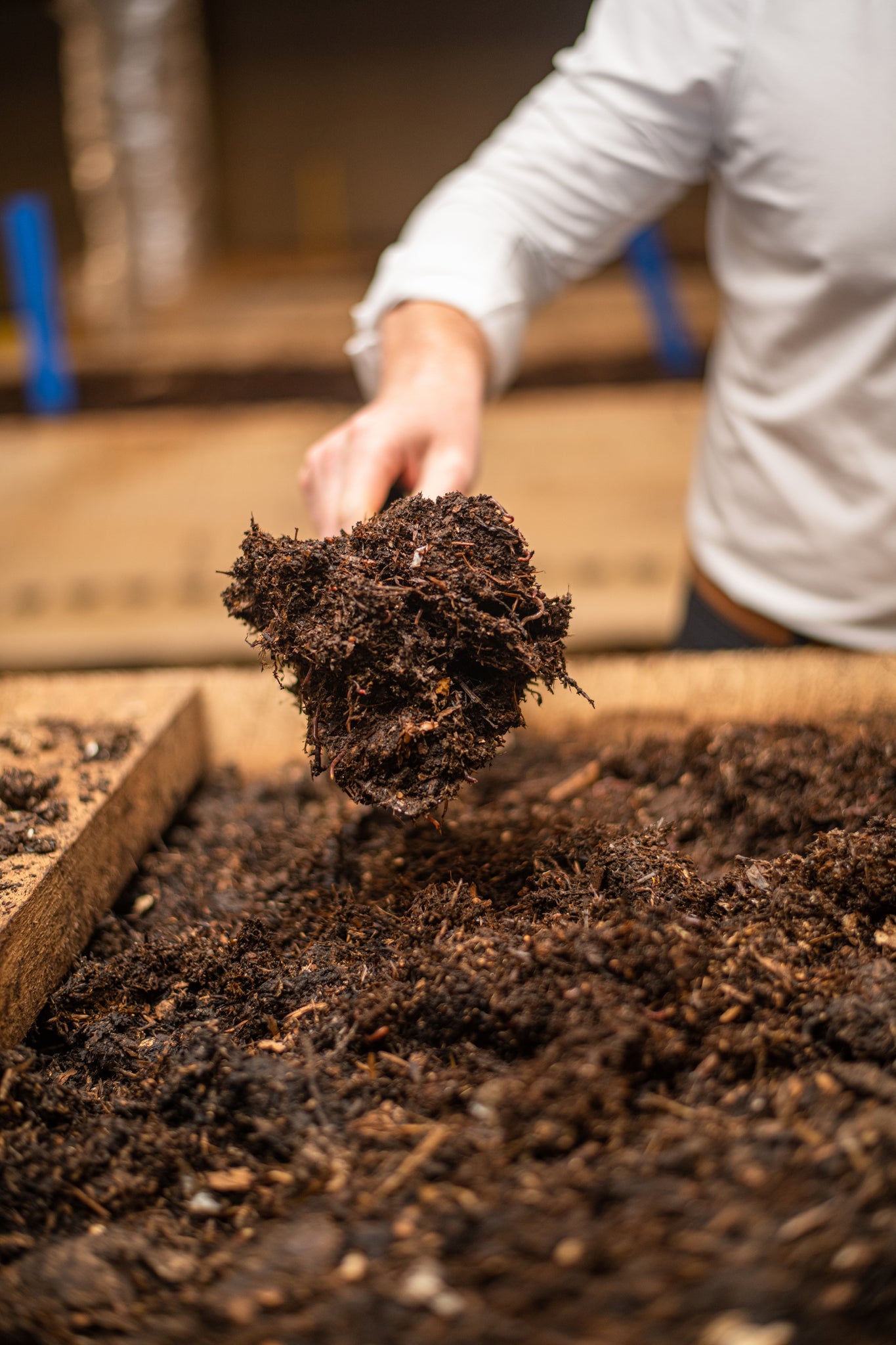Our 0% Food Waste Pledge
Puppy Gang Fresh Foods has always stayed strong on our values:
- Helping dogs live longer and healthier lives through whole foods, high quality ingredients - no chemicals, filler ingredients, synthetic vitamins and no preservatives or additives
- Sustainability through recyclable and reusable packaging
- Supporting rescue agencies by donating 1% of our sales to help them feed their pups human grade food
- Making a positive impact to the dog food industry
In talking to the team at Ethey and coming together with them, we found our values were very aligned. Ethey believe it’s possible to live in a world where eventually, every meal has zero environmental impact on our planet. They are dedicated to creating a world devoid of food waste, one chef-prepared cooked meal at a time. With this, comes Ethey’s and now Puppy Gang’s pledge of 0% food waste within our production, with a goal of preventing 1 billion pounds of food waste.
We now have a pledge of 0% food waste, with a goal of preventing 1 billion pounds of food waste whilst still only using high quality ingredients in our meals
To reach our goal, we reuse, recycle, and upcycle as much of our organic matter as possible - and we only use high quality ingredients. Here’s how it’s done:
Our chefs purchase high quality foods and prepare what is needed for all of our meals using locally sourced produce. Whatever fresh food doesn’t make it into the meal, is assessed to be upcycled back into other meal components. For example, we upcycle eggshells to be treated and used as a natural calcium source in your pups food.
Ethey Foods utilise broccoli and cauliflower stems to create cauliflower rice, soups, stews, sauces, and more. Runoff from cooked shrimp is turned into delicious shrimp bisques and rich, flavourful pasta sauces.
We utilize a worm farm to ensure no meal components go to waste and turn those food scraps into nutrient-rich soil that is returned to the earth
However, not all organic matter can be upcycled into meal components. Since these remaining food scraps can’t be used in meals, and of course, cannot be wasted, we deliver them directly to local worm farms. Rather than end up in garbage bags in landfills, which means the food won’t properly break down, they get repurposed. The worm farms turn the unusable food scraps into nutrient-rich soil, which ultimately gets returned to the earth to start the cycle over again.
What Is a Worm Farm & How Does it Work?
A worm farm is a facility that holds various ‘tables’ in which worms live and compost organic matter using vermicomposting practices. Simply put, food scraps are fed into the top of the table, the worms quickly consume the scraps, and worm castings come out of the bottom.
The worms live in the top few inches of the soil, so the ecosystem is not disturbed during the process of retrieving the castings. For those wondering, castings are worm excrements that are used as high-quality fertilizer in home and commercial gardens or farms. Every 8-10 weeks, full extraction is pulled from the tables and bagged for fertilizer.
There are two types of tables that the worms live in: tray tables and flow-through tables. Tray tables contain a sifter that the material runs through to extract the worm castings. However, garbage, twigs, and castings need to be separated, so this process requires more manual labor than flow-through worm tables. The flow-through worm tables are 4x8 feet or 32 square feet, and there are 1-1.5 lbs of worms per square foot of table area. The bottom of a flow-through worm table is made of ropes, so the castings created by the worm fall to the floor – with the help of a grounds crew member with a rake – when they're ready to be harvested.
This process is ongoing, constantly turning food waste into nutrient-rich soil with the help of worms.
The Wormery
Ethey is proud to work in partnership with The Wormery, operated by The Grove, and Western Fair Association. Founded in January 2020, The Wormery at Western Fair District is a non-profit with a 10,000 square foot worm farm located in the basement of our London, Ontario processing facility. The extensive space is home to over 1,000,000 European earthworms with 4x8 foot tray tables and flow-through tables in which the worms live and compost the organic matter.
The Wormery is one of the worm farms that collects waste from our London processing facility, as well as other local businesses and vendors, making it an exciting endeavor for the London community.
Content
Fun Facts
- Worms have 5 hearts.
- Worms can be cut in half and still survive, but only the half with the head.
- Worms reproduce best in temperatures of 65-85 degrees fahrenheit and moisture levels of 70.
Beyond
The Ethey group is passionate about reusing, recycling, and upcycling where possible. We actively engage in research and development with local colleges, universities, and companies to expand and improve our sustainability practices. This includes developing our worm farm partnership, researching black soldier fly initiatives for composting, discovering new ways to improve our packaging, and more.

